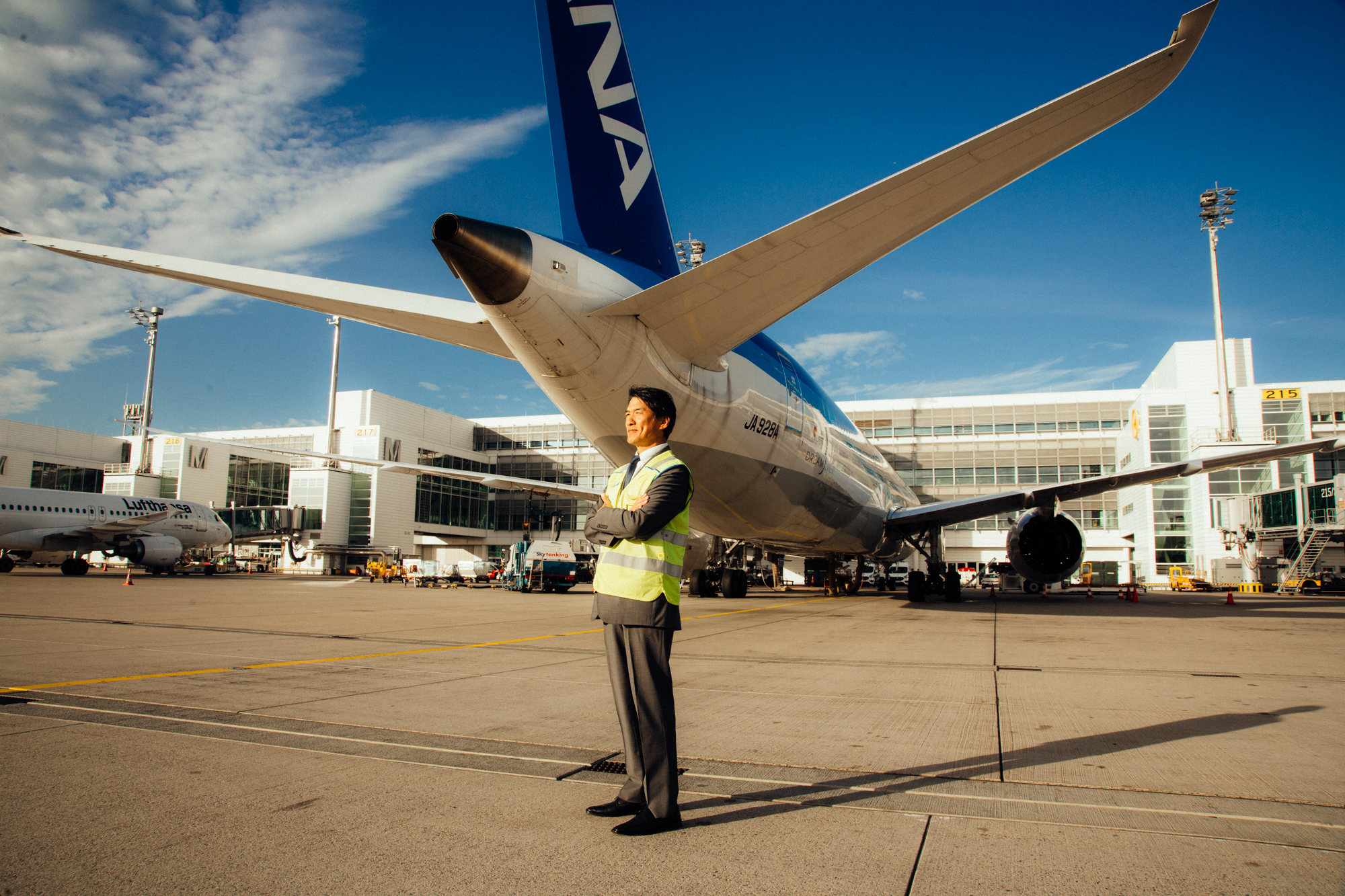Yokogawa is a Japanese measurement and automation technology group with over 100 years of tradition. Today, it comprises 129 companies in 60 countries serving the chemical and pharmaceutical, oil and gas, power, iron and steel, pulp and paper, and food industries. More recently, Yokogawa has been researching and working primarily in the field of sustainable green energy. J-BIG spoke with Ulrich Pichler, Managing Director of Yokogawa Deutschland GmbH, about the history of the company, distinctly Japanese aspects in the German branch, as well as current changes and plans in the company.
J-BIG: Let us talk about the background of the company: What should our readers know about Yokogawa?
Ulrich Pichler: Yokogawa was founded in 1915 by Tamisuke Yokogawa in Tokyo. Originally, the company manufactured electrical instruments for measuring electricity. From the beginning, the focus was on producing high-quality products. The company developed very well in Japan, continuously expanding its technology and product portfolio and branching out into the Asian region. 40 years ago, the company ventured into Europe, establishing its first subsidiaries in 1982 with the acquisition of Electrofact. In Germany, Yokogawa has been headquartered in Ratingen since 1986. The former headquarters of Electrofact B.V. in Amersfoort, the Netherlands, became Yokogawa’s European headquarters. Eight years ago, we celebrated our 100th anniversary. We are very proud of this because it shows that we, like many Japanese companies, are focused on the long-term thinking and sustainability.
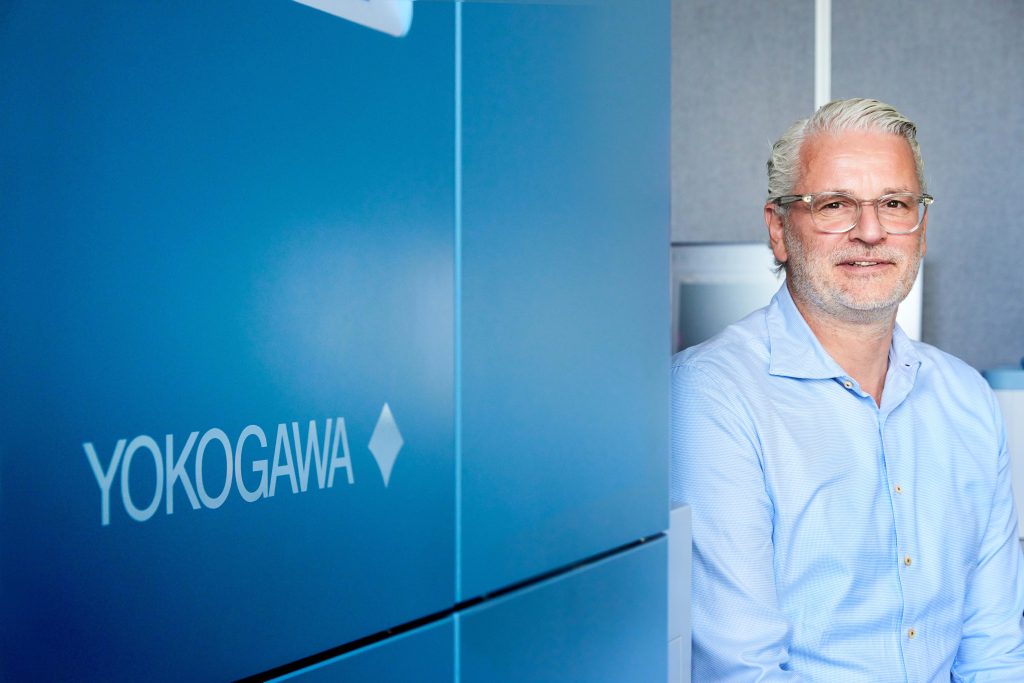
J-BIG: As the new owner of Elektrofact, did Yokogawa sell that company’s products or were Yokogawa projects brought in from the beginning?
Ulrich Pichler: In the beginning it was a combination of both, but today we mainly offer products that have been completely developed by Yokogawa. We tried very early on to bring Japanese products to the European market.
But there are also cases where local technology comes to the fore. In 1991, the company ROTA, based in Wehr am Rhein, Germany, was acquired in order to add flow measurement technology to the portfolio. It has a production facility with 200 employees and even its own R&D department. The products in this area are therefore German technology and are also marketed under the ROTA-Yokogawa name. In 1994, the company nbn ELEKTRONIK, a manufacturer of measurement and test equipment in Herrsching, was acquired. The site specialises in power measurement equipment such as oscilloscopes and multimeters. This area is booming due to electromobility – customers include the telecommunications and automotive industries. Our site here in Ratingen, on the other hand, deals with the industrial application of everything that flows, meaning gases and liquids. The classic chemical and pharmaceutical industries are our main customers.
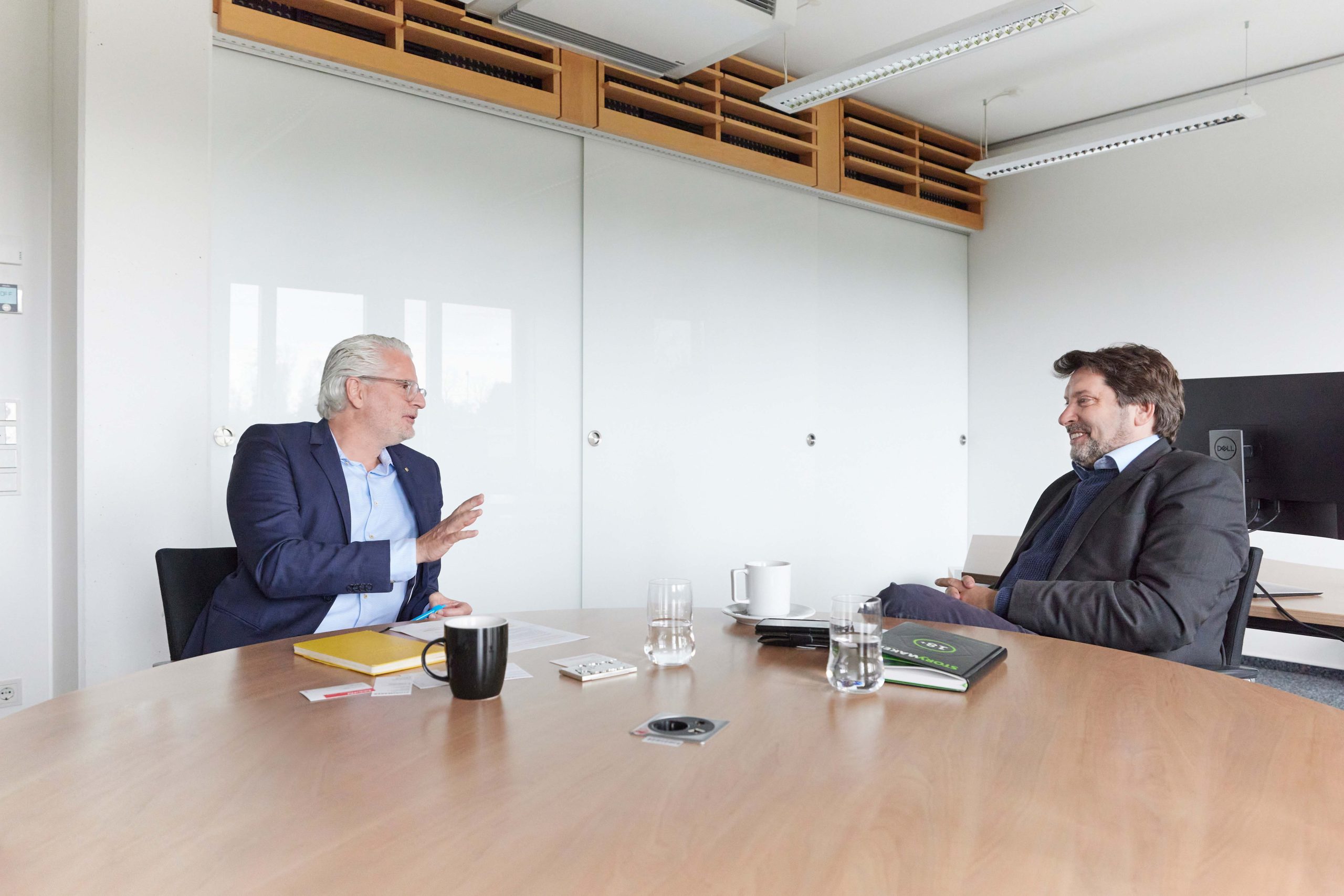
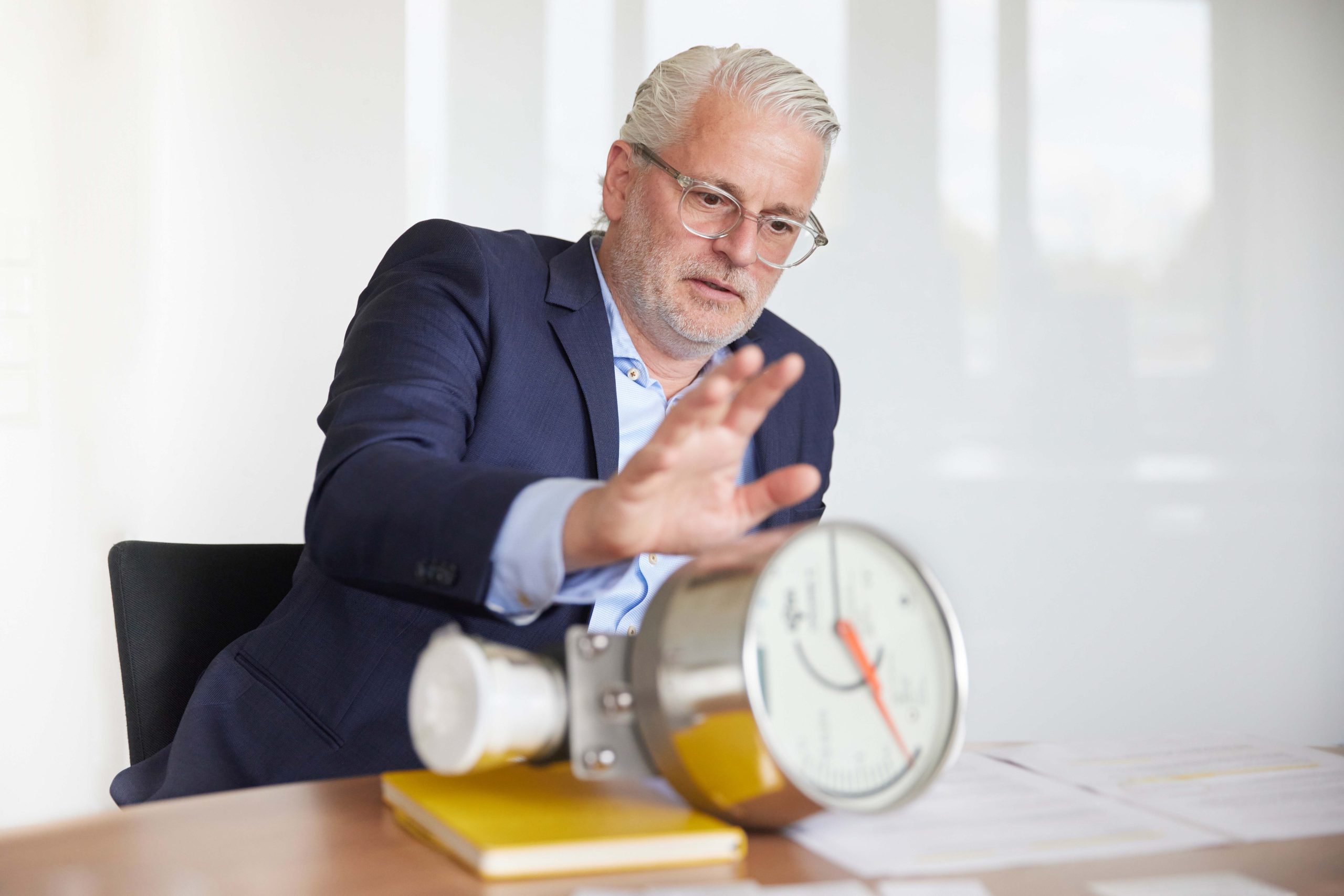
J-BIG: Which product segments account for the largest share of sales?
Ulrich Pichler: The market segments can be roughly divided into three areas: Energy & Sustainability, Materials, and Life. We are positioned differently in each country. In addition, the focus has shifted over the years with the emergence of new technologies. For many years, Yokogawa had a strong presence in the oil and gas industry, equipping oil platforms, pipelines and refineries, for example. But the world is changing and these sectors have become less important. Especially as Yokogawa itself places great emphasis on sustainability.
In Germany, the situation is somewhat different: As Yokogawa entered the market relatively late, areas such as oil and gas were already largely occupied and have never been a big market for us. Our biggest sales come from the chemical and pharmaceutical industries. We are also very strong in Germany in the two segments “Materials” and “Life”. The former encompasses, for example, the steel or pulp industry, the latter includes cell research. This is a unique selling point, as almost all other European locations are more strongly represented in the Energy & Sustainability segment.
The role of the international subsidiaries has also changed considerably: In the 1990s, 70 percent of sales came from Japan and 30 percent from abroad. The tide has now turned: 30 percent from Japan and 70 percent from overseas. Europe accounts for 10 percent of total sales and Germany for 20 percent of the sales in Europe.
J-BIG: How many people work for Yokogawa – in total and in Germany?
Ulrich Pichler: About 17,000 people work for us worldwide. In Germany, we have about 400 employees, of which about 170 work in sales and project planning and about 230 in production. When I joined the company in 1996, there were only 45 employees in Germany, not counting the ROTA staff. Since then we have continued to grow, although the number of employees has not increased at the same rate as the volume of business. Because we have many global projects, our engineering centres are not in Germany, but for example in India with 1,000 employees or in Romania with 200 employees.
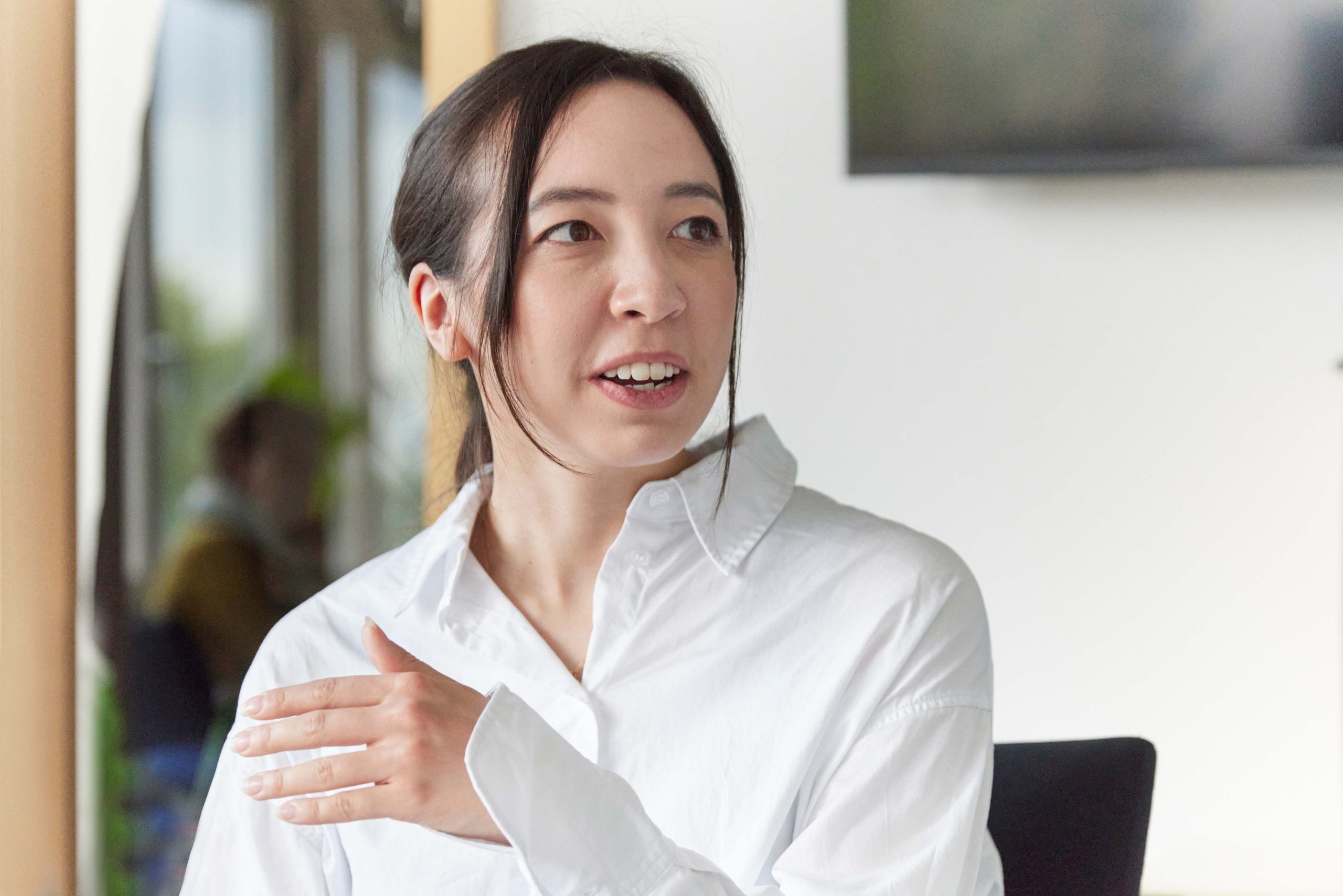
J-BIG: Many Japanese companies tend to fly under the radar in Germany. Does this make it more difficult to recruit new employees?
Ulrich Pichler: We are also affected by the shortage of skilled workers, but we try to counteract this by doing a lot to impress as an employer. The diversity of topics at Yokogawa is reflected in our employees. They come from a wide variety of backgrounds: biologists, computer scientists, electrical and process engineers, as well as business people, technicians and business economists. And they come from many different countries. I am very happy about the mix of cultures and the international cooperation in our company. We have a very family-like corporate culture and our aim is to create a pleasant workplace for our employees: We design the rooms with light and lots of colour, we combine communication and meeting spaces in our lounge, we offer state-of-the-art shared desks as well as remote working and flexible working hours, and last but not least we provide drinks and fruit as well as job e-bikes.
On average, our employees stay with the company for a very long time. It is also striking that many young people who leave the company to pursue a career return after a few years. But there is a generational gap, as well. For young people, it is important that the company they work for contributes to the well-being of society. This aspect is becoming increasingly important and motivates us.
J-BIG: Where do the systems and products sold in Germany come from?
Ulrich Pichler: Most of them are Japanese products with European certification. Product development takes place almost exclusively in Japan and there are products that are only sold in Japan. At the lowest level of the automation pyramid, the first thing that needs to be measured are physical parameters such as pressure, temperature, flow or pH. We receive these instruments from Japan and bring them to market.
The middle level of the pyramid involves the processing of these measurements, that is, the actual automation. Yokogawa works with the measurement information from sensors, which is processed in our control system. This control system then sends commands to the actuators, for example to open valves. At this level, we have many products and services for which we also work with other companies. For example, we design and build control cabinets together with other companies. As Yokogawa Germany, we are also heavily involved in planning and implementation.
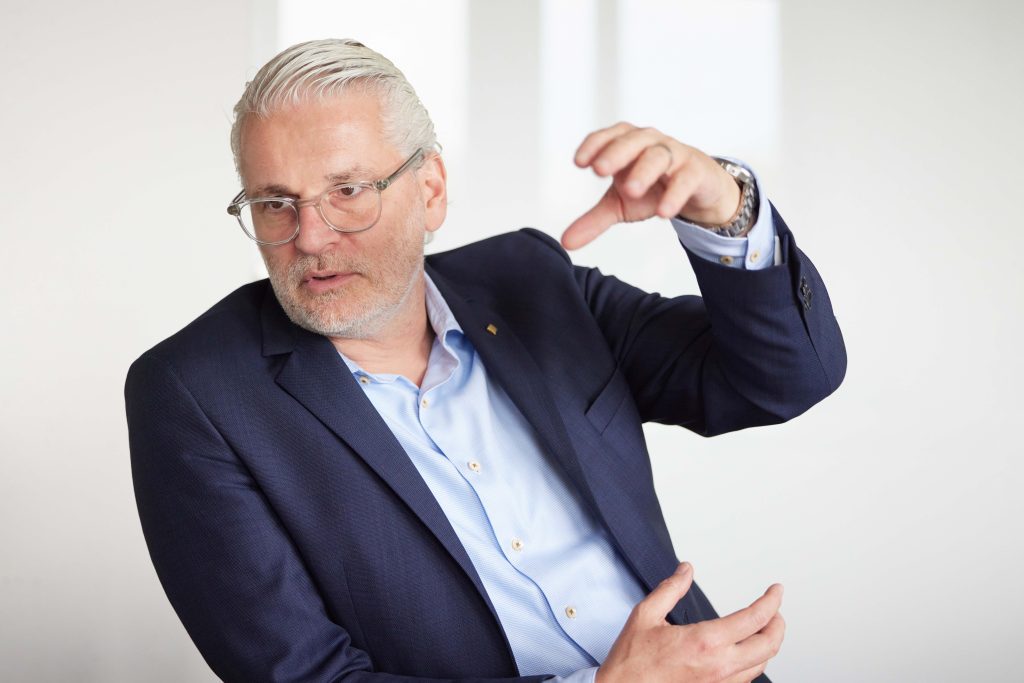
At the highest level, it’s a matter of optimising and linking the solutions to merchandise management systems. In chemical production, for example, we try to optimise energy consumption across the entire production site. This also takes into account the energy prices of different energy sources, which fluctuate throughout the day.
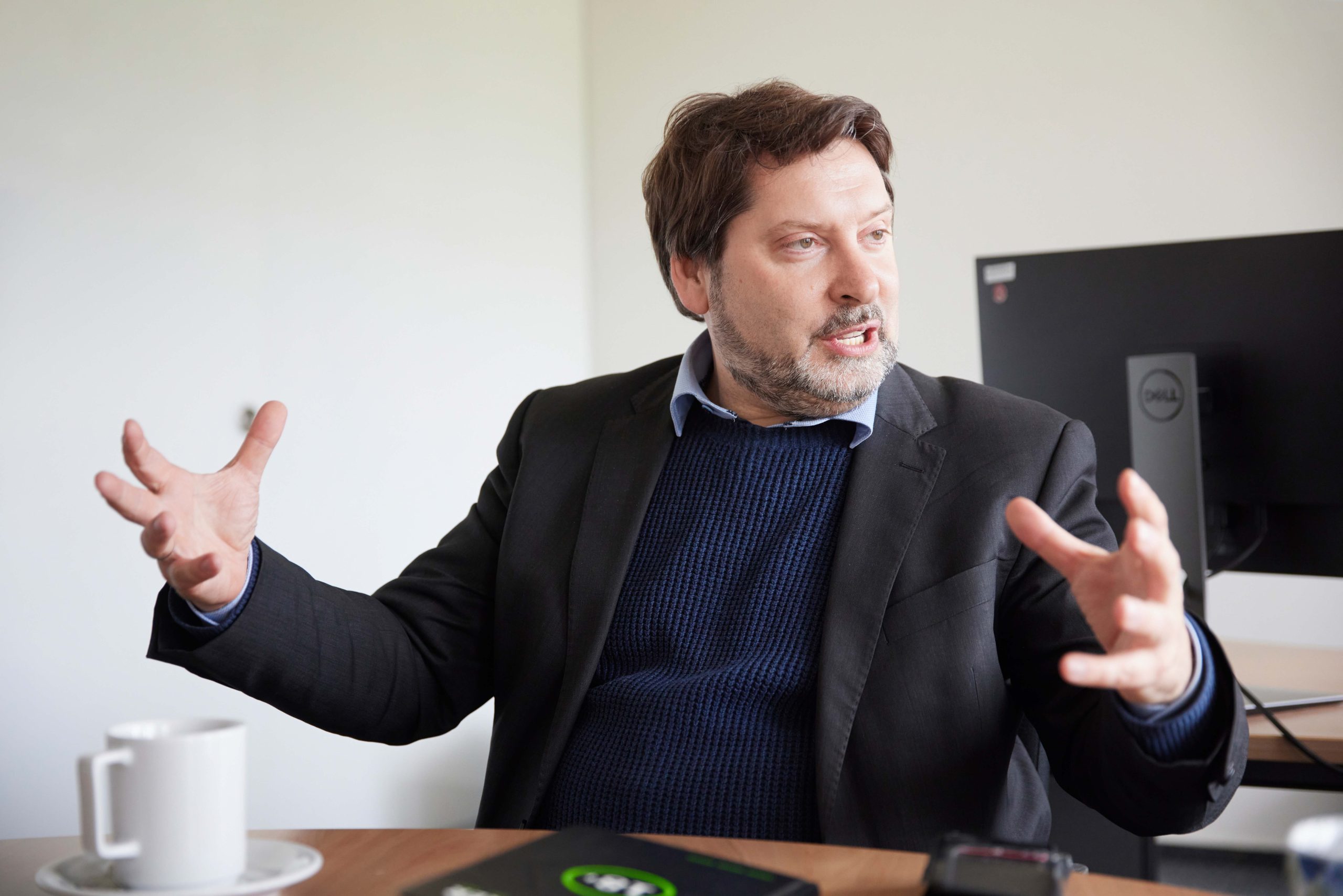
Ulrich Pichler: We have a hybrid form of organisation. On the one hand, we have a classic corporate structure with a head office in Japan and regional headquarters. At the same time, we are now increasingly organised by industry. Communication is also organised along these two axis.
As Managing Director for Germany, Austria and Switzerland, I report primarily to the European President. For many years, both the position of the German Managing Director and that of the European President have typically been held by a European. This distinguishes us from many other international Japanese companies. For the past year and a half, however, the European President has been Japanese, for the first time in a long time. In this respect, I have direct contact with the Japanese side, although not with the head office.
In my second role, I am responsible for the Life business in Europe. This includes microscopy and life science solutions that support basic research and drug discovery applications. In this role, my immediate supervisor is a member of the Business Board at the Japanese headquarters. So in this case, I report directly to Japan.
J-BIG: How are the tasks distributed between the different levels?
Ulrich Pichler: We see it as our most important task to understand the challenges and requirements of the European and German markets and to communicate them to the Japanese headquarters. This was not always easy in the beginning, especially as most of the product development takes place in Japan. The requirements for our products can differ from country to country, and you also need special certificates. We make sure that the European markets are heard and taken into account. One area that is coordinated centrally in Europe is marketing. Although, of course, some things, such as translations, are handled locally. The individual countries are also important when it comes to developing new strategic areas. It makes a lot of sense to implement such projects on a small scale first, before other countries adapt them if necessary. Germany, for example, covers microscopy for Europe.
Sales and everything that goes with it is also handled locally in Germany. The complete implementation and project planning, including engineering and commissioning of the systems, takes place here in Ratingen, with the support of global engineering centres where necessary. We work very closely with our customers: A joint needs analysis, detailed consultations and customised solutions are an integral part of our service. Our products last for many years but, like a car, they need regular maintenance.
J-BIG: How strong is the Japanese influence on Yokogawa Deutschland GmbH?
Ulrich Pichler: One special feature of Yokogawa is that we attach great importance to integrating the regional culture of the individual locations. We believe that this enables the regional locations to develop better.
At the same time, there are many similarities between Japan and Germany. For example, both countries tend to be conservative when it comes to technological development. Changes are considered cautiously. Attention to detail is certainly another similarity: there is a strong emphasis on well-engineered, high-quality products.
A typically Japanese aspect of our German subsidiary is the long tenure of employees. The Japanese concept of service also influences our work in the German branch. This concept is much more dominant in Japan than in Germany. Customer relationships are very important, and Yokogawa attaches great importance to the completion of all customer projects.
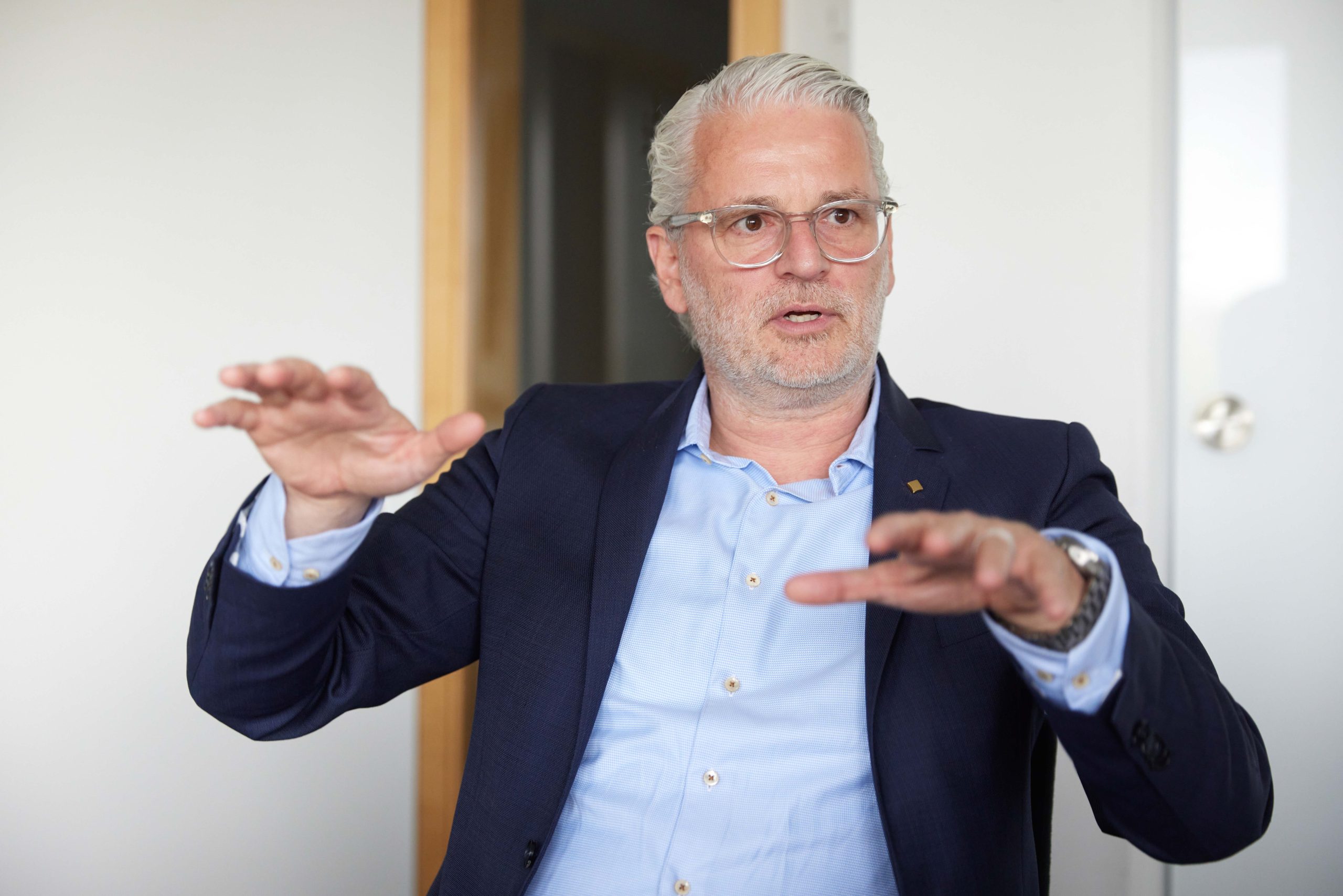
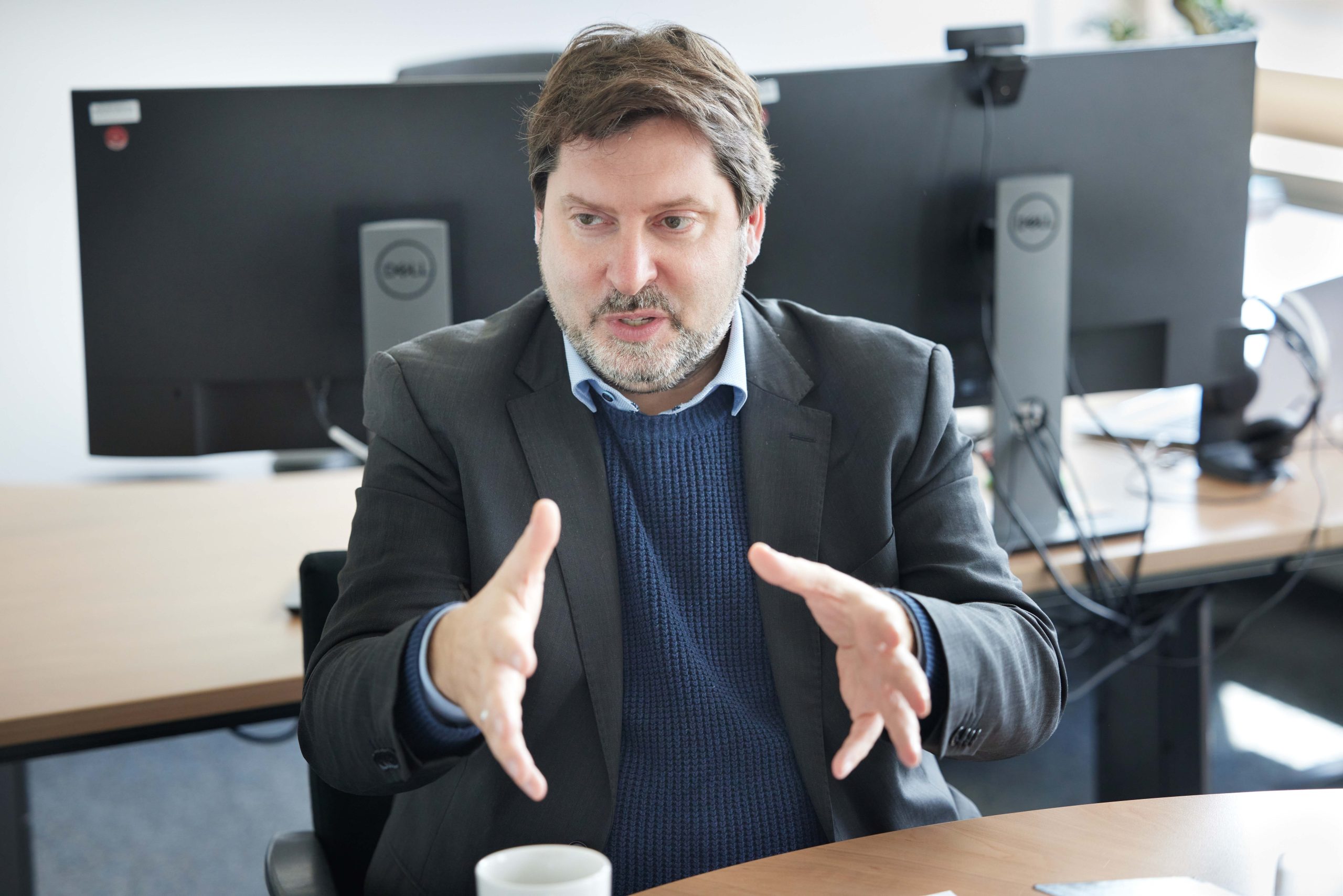
J-BIG: Does customer feedback in Germany reflect this emphasis on service?
Ulrich Pichler: Customer feedback is very important to Yokogawa. In the external evaluations we commission, the company scores very well. Apart from the service, this is certainly due to the high quality of our products. We may not always be the cheapest supplier, but it pays off in the long run – the products last longer and we maintain long-term customer relationships. Of course, we are always striving to improve and provide the best service to our customers. The combination of excellent quality and outstanding service pays off very quickly for our customers.
J-BIG: Yokogawa has not had expatriates for a number of years. Why are you now planning to bring some back?
Ulrich Pichler: Our company is always interested in developing new business areas. For the business areas where we are just starting in Europe, it is important that Europe and Japan deepen communication and exchange. Expats are much better at communicating the issues and concerns from Europe to the head office in Japan. In board meetings, it is not always easy for a non-Japanese to raise and communicate regional issues. This is due both to the language barrier and cultural differences. We believe that it is a great strength to be able to present European issues in Japanese and to position them appropriately to the board. Therefore, having an expat as a liaison is a great support for our company.
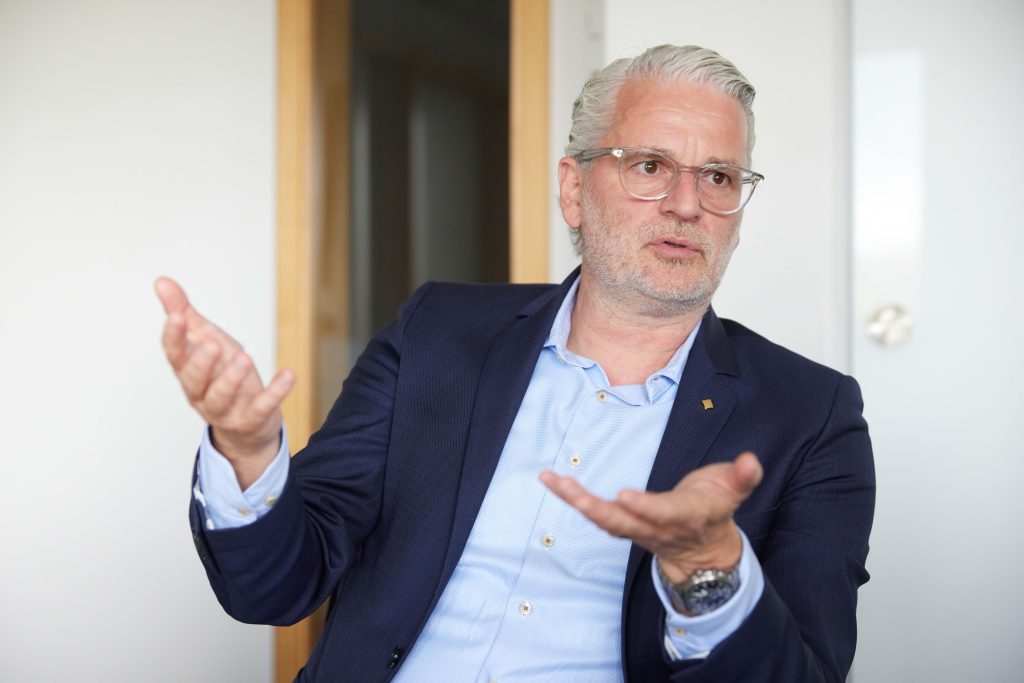
J-BIG: What are Yokogawa’s plans for the future? And how are they reflected in the strategic direction of the German subsidiary?
Ulrich Pichler: As a first step, we want to become a $4 billion company and grow from there. Yokogawa divides the global market into four regions, meaning that each region has to achieve a turnover of one billion US dollars. There has been a lot of movement and change in the last three years. The market we are in is very conservative. In a chemical plant, for example, safety is paramount, otherwise there could be explosions. The chemical reactions must always be under control. Typically, an automation solution is installed once and remains in place for many years. This makes it difficult to break into market segments that are already occupied, especially since we have only been active in the European market for 40 years. This has changed with the emergence of new business areas in recent years. The energy revolution, for example, has brought hydrogen to the fore. The market for these new areas is just now being tapped. With a new focus on green energy, we also want to make a positive contribution to society – together with the younger generation.
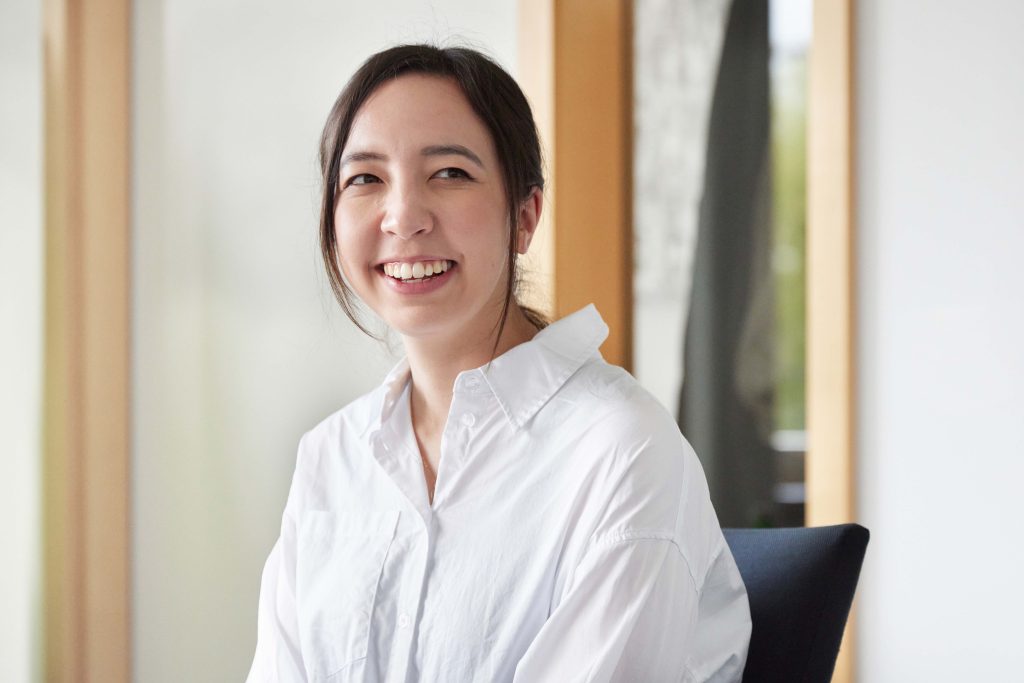
There are also many changes at the technological level: Solutions are becoming more complex. This means that as a company we can no longer do everything on our own. That is why we will cooperate more in the future.
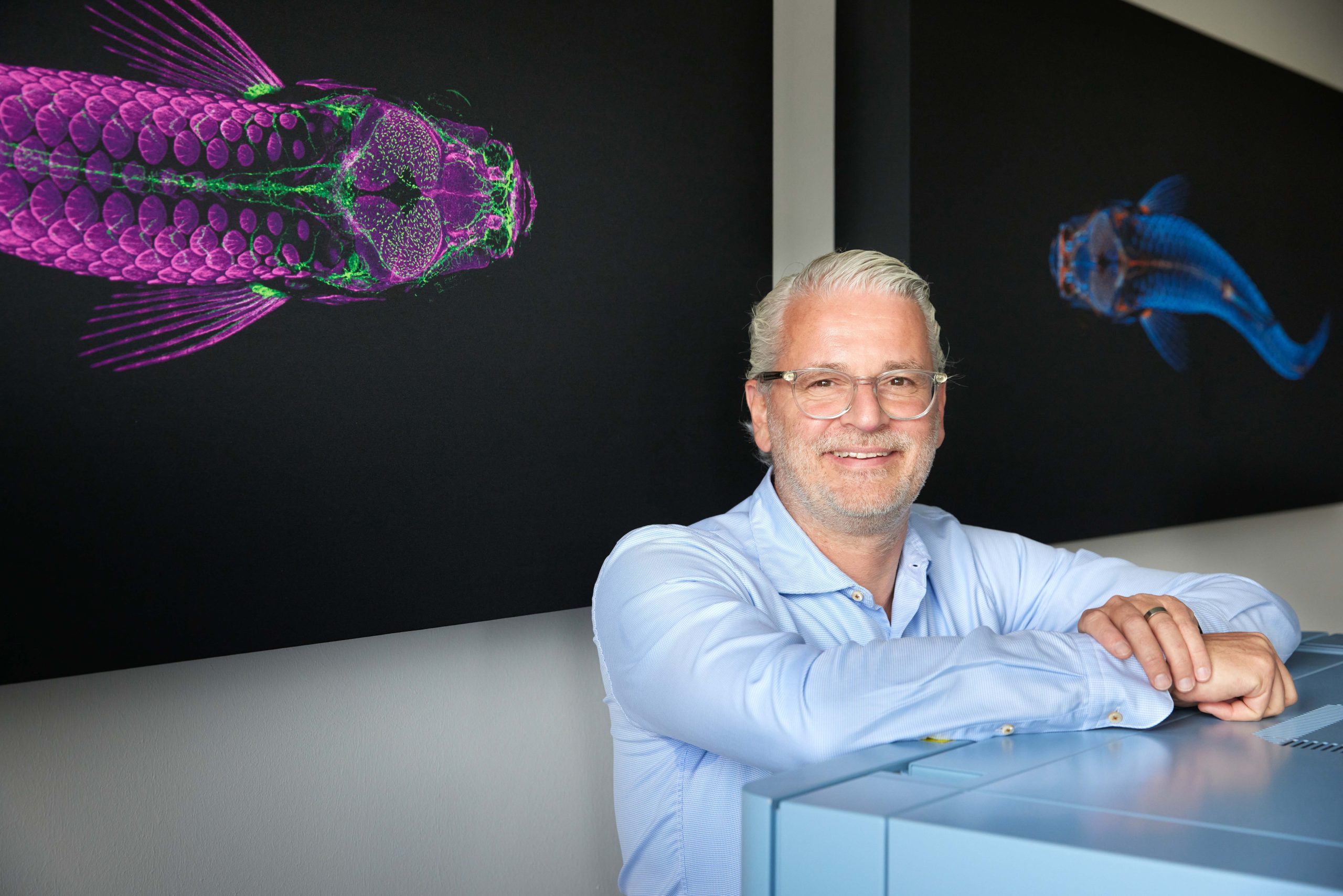
J-BIG: Are such new topics driven from Japan or are they controlled locally in Germany?
Ulrich Pichler: Europe is a pioneering region in terms of sustainability. That’s why Yokogawa is interested in pushing the hydrogen issue from here.
A key insight is that we don’t have to save the world alone. There are already many good solutions and cooperation opportunities in Europe that we can build on. Our task in Germany is to develop a concept that can drive the hydrogen project forward within the Group. The same applies to the pharmaceutical sector.
J-BIG: Are you facing any difficulties in this transition?
Ulrich Pichler: The current challenges include high energy prices and a shortage of raw materials. The German chemical industry, for example, is suffering greatly from these issues. But many infrastructure and hydrogen projects in Europe are picking up speed. Hopefully, we will be able to benefit from these investments. I believe that the new opportunities are much greater than the areas where we are seeing a decline. So we are very positive about the future.



